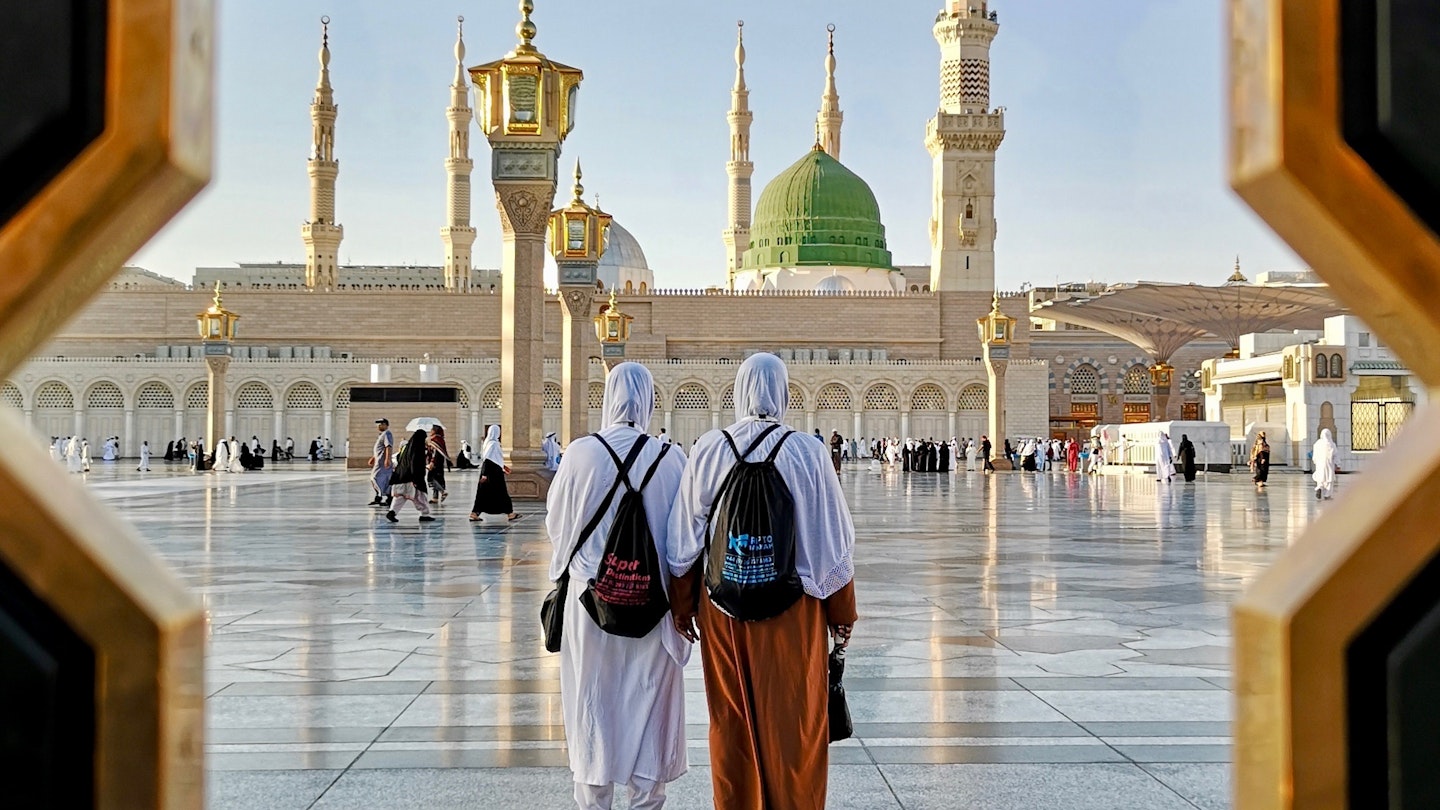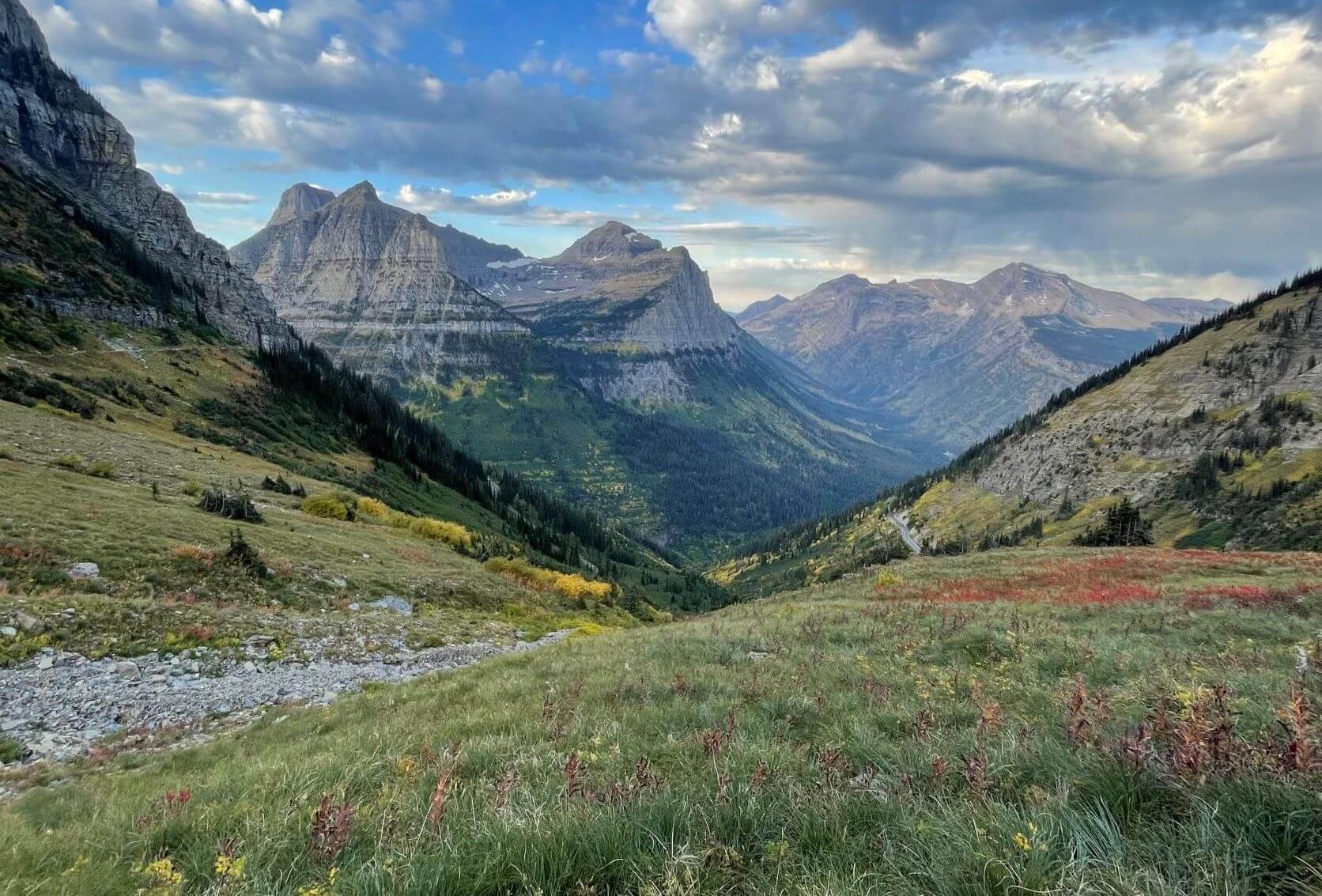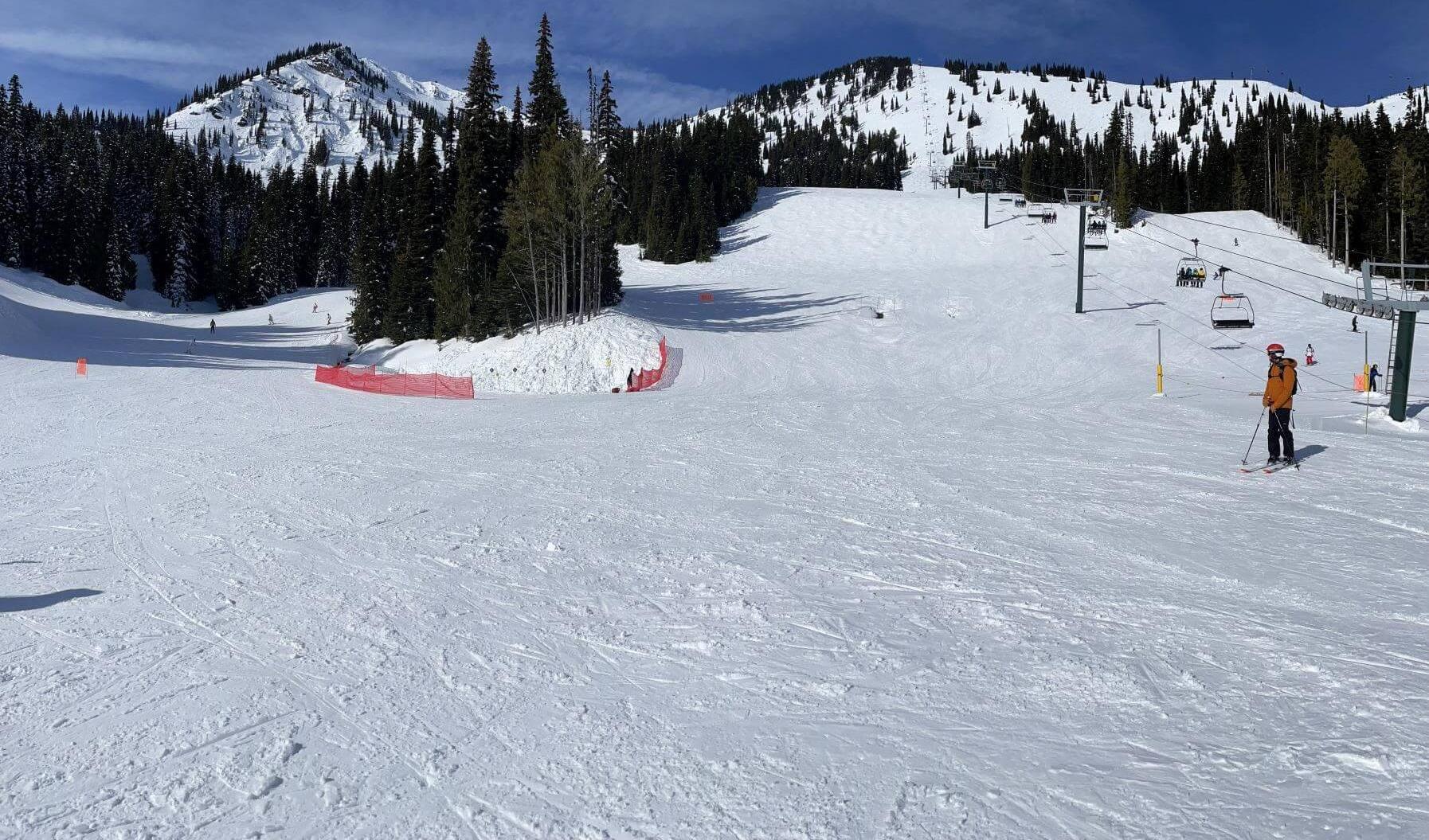Exploring the relative peace of Madinah
If Makkah represents the chaos of the Hajj, then Madinah serves as a peaceful oasis. Ever since the 7th century, these two sacred cities have been intertwined; Makkah is where the Prophet Muhammad was born, yet rejected, while Madinah welcomed him, providing refuge and ultimately, a resting place.
The iconic green dome of the Prophet’s Mosque, which dominates the heart of Madinah, marks this significant landmark.
Constructed by the Ottomans in 1817, it is one of the mosque’s surviving historical structures.
“There are tales of the wahhabis attempting to destroy it, but those who climbed to do so met fatal accidents, which was seen as a divine sign to leave it intact,” related an elderly man from England, as I admired the mosque’s skyline on my first day in the city.
The dome, he explained, was once the site of the Prophet’s house, which existed when Madinah was no larger than the current Grand Mosque. Beneath it lies the Prophet’s tomb, alongside those of two caliphs, Abu Bakr and Omar Ibn al-Khattab.
“They also say there’s a fourth, empty grave reserved for Isa – Jesus – upon his return,” he added.
The visit to these tombs is a primary reason many Muslims incorporate a trip to Madinah into their pilgrimage.
Our arrival fell on a Friday, and around midday, I found myself on the way to the mosque for the jumma prayer with our Sheikh and Fouaz, one of our tour operators, a native of Madinah.
“That’s where we used to play football,” said Fouaz, gesturing toward a grand pillar topped with a massive white parasol. The towering structures unfurl their motorized canopies every morning, providing worshippers shelter from the harsh Saudi sun.
“And over there…” he pointed to the southwestern corner, “was where my house used to be. Everything has changed now.”
Throughout the Hajj, Fouaz efficiently handled logistics. Initially not the warmest individual, he often seemed agitated. However, now with the Hajj concluded, he appeared transformed; he was back home.
As we awaited the start of the prayer on the mosque’s rooftop, the Sheikh, who had also returned to a city where he once studied, reclined comfortably.
When the ikhama was called, I stood beside my Sheikh one last time. A gentle breeze swept through the canopied rooftop, and as I raised my hands to begin the prayer, I quietly expressed gratitude to the Sheikh for guiding me through my Hajj.
Somewhere ahead lay the body of the man who had taught us all, and as we knelt, I thanked him too, alongside every other worshipper present.
Adjusting to life outside the Hajj bubble
The essence of pilgrimage is transitory; for a fleeting moment, we dwell within a magical bubble. Energized by religious fervor and pious company, fulfilling obligations becomes significantly easier. We pray punctually, embody a devout demeanor, and consistently remember God in all actions.
However, returning from this pilgrimage brings its unique challenges.
Re-entering the world outside that bubble, we find the daily struggles we had left behind still exist, and many of us experience the inevitable low that often follows such a profound spiritual high.
In the days immediately following my return to the UK, I noticed this in everyone. My mother expressed sorrow that she might never see the Kaaba again, but she was also deeply grateful that I had taken her ‘one last time’.
Others I spoke to shared similar sentiments of melancholy for differing reasons.
“I sometimes wish I had done more,” said my cousin, Raf, as we drove down a bustling dual carriageway in north London, headed for football one evening.
It had been nearly two weeks since our journey back home.
“I regret not spending more time praying in the haram, maximizing the reward while being there.”
Raf’s sentiment reflected a well-known tradition; prayers performed inside the Grand Mosques carry amplified rewards. While we made efforts to attend most congregational prayers, the exhausting Hajj schedule, along with the need to care for our parents, necessitated rest at times to ensure we could continue to provide for them.
What had once seemed essential for our well-being during the pilgrimage, Raf now viewed as missed opportunities.
“We will inevitably have regrets post-pilgrimage, bro, yet we may benefit from a different perspective on this one,” I suggested gently.
Raf appeared uncertain.
The sky was an enchanting pinkish-red, and in the rearview mirror, the onset of a stunning sunset emerged. I shared this sight with Raf.
“Isn’t it beautiful?”
He turned to glance at the mirrors.
“Perhaps on this trip, the greatest reward lay in the ordinary moments; ensuring your mother’s comfort, aiding her with her medicine, providing food, and allowing unrestricted access to perform her Hajj rites. Maybe the true reward was in those selfless actions?”
Both of us had dedicated our personal spiritual moments to be with our mothers; the occasions when we might have otherwise immersed ourselves in the Hajj rites were sacrificed to ensure they could fully realize their pilgrimage experience.
Raf stared straight ahead, silent. The traffic was picking up as we neared our turn.
“You make a valid point, bro,” he eventually acknowledged.
I gazed at the sky, opting not to press further, accepting that we process experiences differently.
Yet, as we drove toward a simple joy we had cherished since childhood, an experience where we could simply play and momentarily escape life’s serious obligations, I felt immense gratitude.
I was thankful that God had allowed us both to be guardians for our mothers during Hajj. I was grateful I could deliver the requests from friends and family at Arafat, and above all, I was thankful we were back with our loved ones, in good health. After such a significant experience, I sat beside my cousin, profoundly appreciative of the ordinary moments.





